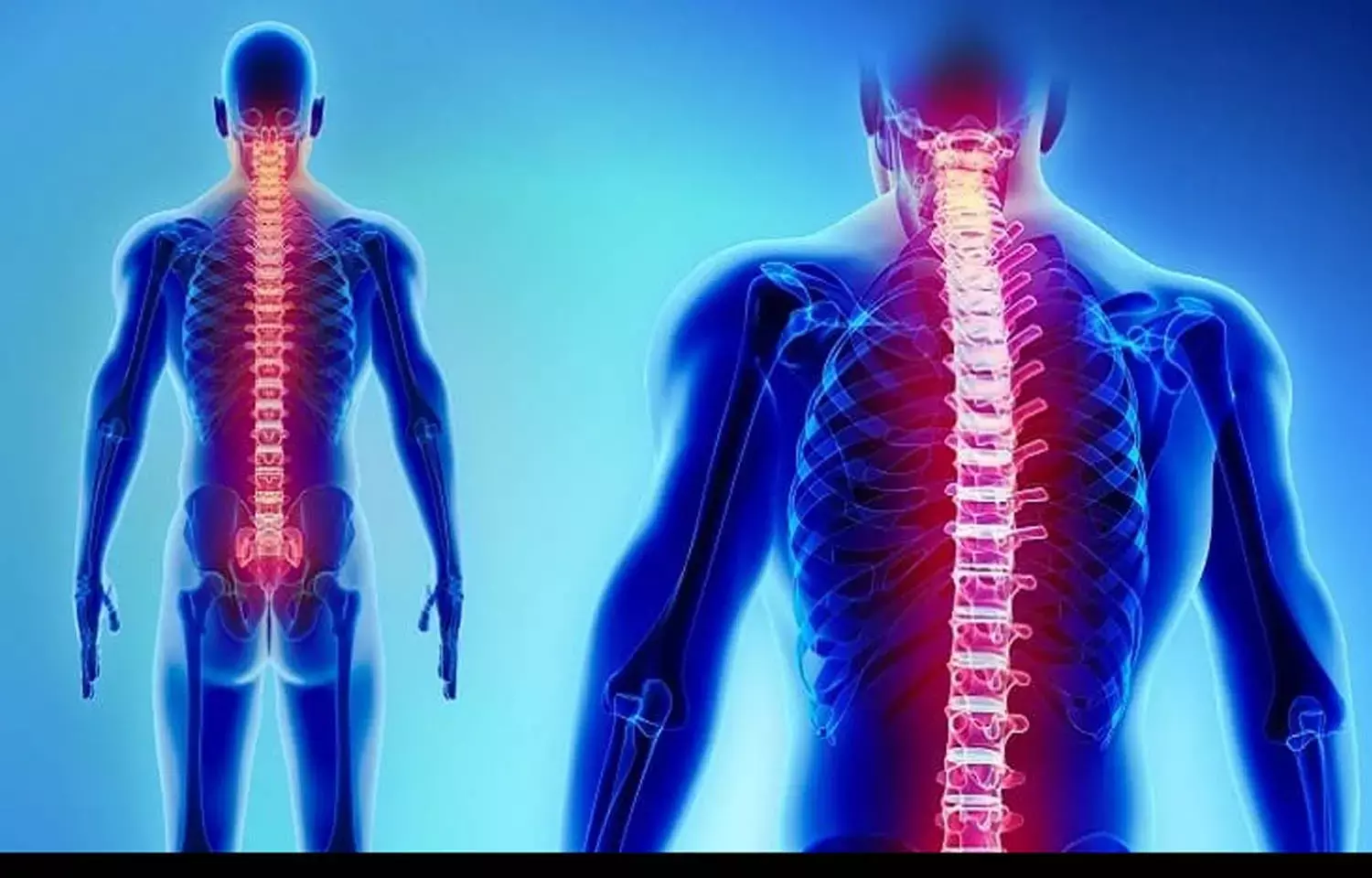- Home
- Medical news & Guidelines
- Anesthesiology
- Cardiology and CTVS
- Critical Care
- Dentistry
- Dermatology
- Diabetes and Endocrinology
- ENT
- Gastroenterology
- Medicine
- Nephrology
- Neurology
- Obstretics-Gynaecology
- Oncology
- Ophthalmology
- Orthopaedics
- Pediatrics-Neonatology
- Psychiatry
- Pulmonology
- Radiology
- Surgery
- Urology
- Laboratory Medicine
- Diet
- Nursing
- Paramedical
- Physiotherapy
- Health news
- Fact Check
- Bone Health Fact Check
- Brain Health Fact Check
- Cancer Related Fact Check
- Child Care Fact Check
- Dental and oral health fact check
- Diabetes and metabolic health fact check
- Diet and Nutrition Fact Check
- Eye and ENT Care Fact Check
- Fitness fact check
- Gut health fact check
- Heart health fact check
- Kidney health fact check
- Medical education fact check
- Men's health fact check
- Respiratory fact check
- Skin and hair care fact check
- Vaccine and Immunization fact check
- Women's health fact check
- AYUSH
- State News
- Andaman and Nicobar Islands
- Andhra Pradesh
- Arunachal Pradesh
- Assam
- Bihar
- Chandigarh
- Chattisgarh
- Dadra and Nagar Haveli
- Daman and Diu
- Delhi
- Goa
- Gujarat
- Haryana
- Himachal Pradesh
- Jammu & Kashmir
- Jharkhand
- Karnataka
- Kerala
- Ladakh
- Lakshadweep
- Madhya Pradesh
- Maharashtra
- Manipur
- Meghalaya
- Mizoram
- Nagaland
- Odisha
- Puducherry
- Punjab
- Rajasthan
- Sikkim
- Tamil Nadu
- Telangana
- Tripura
- Uttar Pradesh
- Uttrakhand
- West Bengal
- Medical Education
- Industry
Epidural steroid injections don't increase postoperative complications of spine surgery : Study

USA: About half of the patients undergoing lumbar spine surgery for stenosis have received preoperative epidural steroid injections (ESI), according to a recent study in the European Spine Journal.
ESI, even when, given in close proximity to surgery, was not found to be associated with increased risk of complications after surgery. However, the patients who received preoperative ESI had more readmissions and reoperations post-surgery.
Jayme C. B. Koltsov, Stanford University School of Medicine, CA, USA, and colleagues aimed to examine rates of preoperative ESI in lumbar spine surgery and determine whether preoperative ESI or the timing of preoperative ESI is associated with rates of postoperative complications and reoperations.
For the purpose, the researcher used the MarketScan databases from 2007–2015 of patients undergoing lumbar spine surgery for disc herniation and/or spinal stenosis. Propensity-score matched cohorts were constructed to compare rates of complications and reoperations in patients with and without preoperative ESI.
Key findings of the study include:
- Within the year prior to surgery, 120,898 (46.4%) patients had a lumber ESI.
- The median time between ESI and surgery was 10 weeks. 23.1% of patients having preoperative ESI had more than one level injected, and 66.5% had more than one preoperative ESI treatment.
- Patients with chronic pain were considerably more likely to have an ESI prior to their surgery (OR 1.62).
- Patients having preoperative ESI within in close proximity to surgery did not have increased rates of infection, dural tear, neurological complications, or surgical complications; however, they did experience higher rates of reoperations and readmissions than those with no preoperative ESI.
"Half of patients undergoing lumbar spine surgery for stenosis and/or herniation had a preoperative ESI," wrote the authors. "These were not associated with an increased risk for postoperative complications, even when the ESI was given in close proximity to surgery. Patients with preoperative ESI were more likely to have readmissions and reoperations following surgery."
Reference:
The study titled, "Preoperative epidural steroid injections are not associated with increased rates of infection and dural tear in lumbar spine surgery," is published in the European Spine Journal.
DOI: https://link.springer.com/article/10.1007/s00586-020-06566-6
Dr Kamal Kant Kohli-MBBS, DTCD- a chest specialist with more than 30 years of practice and a flair for writing clinical articles, Dr Kamal Kant Kohli joined Medical Dialogues as a Chief Editor of Medical News. Besides writing articles, as an editor, he proofreads and verifies all the medical content published on Medical Dialogues including those coming from journals, studies,medical conferences,guidelines etc. Email: drkohli@medicaldialogues.in. Contact no. 011-43720751


